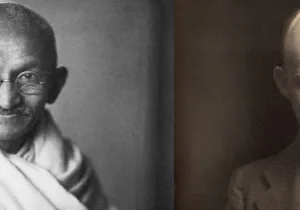Paul Ramsey was once the leading voice in Christian ethics in our country. Now, largely forgotten beyond the academy, his insights are needed more than ever as we find ourselves caught between twin temptations: a Reinhold Niebuhrian resignation to the “lesser of two evils” and a Dietrich Bonhoefferian belief in “necessary exceptions” to our best moral reasoning. In his 2015 book, Power and Purpose: Paul Ramsey and Contemporary Political Theology, Adam Hollowell presents a Ramsey who can guide us through this Scylla and Charybdis. Ramsey, sharing Niebuhr and Bonhoeffer’s concerns for political responsibility and protecting the vulnerable, offers an alternative to the all-too-common assumption that Christian faithfulness sometimes requires the abandonment of moral norms.
According to Hollowell, the relationship between creation and covenant drives Ramsey’s ethical reflection. Unlike our run-of-the mill schemas that deploy unnatural dichotomizations of natural and supernatural, justice and love, thus keeping theology at arm’s length from political thought, Ramsey instead brings these things together through his exploration of the unity of creation and covenant.
Drawing upon Karl Barth’s declaration in the Church Dogmatics that creation is “the external basis of covenant” and covenant “the internal basis of creation,” Ramsey affirms, with Barth, that “covenant is the goal of creation [and] not something which is added later to the reality of the creature.” That is, there is no “natural” to be cordoned off entirely from the “supernatural.” After all, the destiny of human nature is to be in covenant with God, or as Thomas Aquinas would put it: to be friends with God. It is the separation of the two, nature and grace, then, that is unnatural.
Likewise, Ramsey says in Christian Ethics and the Sit-In that justice and love are “ultimately inseverable.”Justice is the external basis of love, protecting creation and preserving the possibility of love, which is found in covenant with fellow man. Love is the internal basis for creation, the reason why justice is necessary to preserve love’s place. Both, not just justice, are public, political principles. This means that Ramsey is comfortable exhorting the state to enshrine love in its laws; in fact, justice requires it.
So how does a loving state go to war? As Ramsey insists in The Just War: “what justified also limited.” For Ramsey, love justifies the use of force to protect innocent third parties. But precisely because the justification comes from love, the justification is not limitless. War without limit is a failure of love. Though it may sound odd, limits to war are a form of enemy love!
This is not a refrain to be found in the work of Niebuhr. Love is something the state can only ever approximate; instead, it must settle for earthly justice. Political actions are always marred by the Fall and so in politics we must choose between the lesser of two evils. There is no avoiding sin (sometimes called “dirty hands”) in the public realm. Responsible human beings must acknowledge the necessity of sometimes committing evil, even if it’s the least bad option.
Ramsey, however, takes Paul’s remarks in Romans 3:8 to bind Christian consciences in politics every bit as much as in church and private settings. The apostle condemns those who propose to “do evil that good may come,” which Ramsey generalizes to mean that “it can never be right to do wrong for the sake of some real or supposed good” (The Just War).
Instead of the lesser of two evils, then, Ramsey insists that the Christian pursue the “greatest possible good.” While a Niebuhrian and a Ramseyan might use “least possible evil” and “greatest possible good” to describe the same action, the semantics are important. Christians are not consigned to deny God in every action but are freed to choose the good, to claim otherwise is to deny the significance of the Holy Spirit and God’s promise to deliver Christians from temptation. It is not as if God’s power and promises become invalid as soon as one empties out of the sanctuary into the city square. Ramsey believes in the possibility of faithful Christian presence in the political realm.
Nor does Christ-like love prevent Christians from exercising coercive, even lethal power. This is one of Bonhoeffer’s mistakes. Unlike Niebuhr, his one-time professor at Union Theological Seminary, Bonhoeffer believed that the Sermon on the Mount laid out the pattern of life for Christians, not just in the privacy of the church—as Niebuhr believed—but under every “divine mandate” (the language Bonhoeffer came to prefer in his later work): family, government, church, and work. Christians, he took the Sermon on the Mount to teach, were forbidden from any kind of violence, even when acting as agents of the state, even in defense of others. Caught up as he was in conspiracies to kill Hitler, Bonhoeffer ultimately considered himself culpable of murderous intent. However, Bonhoeffer thought that Christian faithfulness in this uniquely urgent and dire situation require that he willingly take on sin (by conspiring to kill Hitler) in order to protect the victims of the Nazi regime.
In his late, unfinished work, Ethics, Bonhoeffer is dismissive of absolute moral norms. He writes that the faithful person is “not fettered by principles,” for “principles are only tools in the hands of God; they will soon be thrown away when they are no longer useful.” His conception of faithfulness is radically open to divine commands. Principles, he might say, are the refuge of empty religion, a legalistic Pharisaism that vaunts ethical ideals over the real, living God. So, we must be free of them—and to be free of them means to be able to make exceptions, Bonhoeffer thinks. Hence a pacifist abetting the plot to kill Hitler. Despite his pacifism, Bonhoeffer smuggles back in a Niebuhrian disregard for absolute norms by turning to an exception ethic.
This example does not rub most the wrong way because we—unlike Bonhoeffer—may think conspiring against Hitler is a completely justifiable action in itself. We might only think Bonhoeffer was wrong to heap guilt on himself for his involvement, not wrong for being involved. Yet, if this is the case, we ought not to speak of what Bonhoeffer did as a justifiable exception to our moral norms.
As Ramsey makes clear, there is no such thing as a justifiable exception. The very idea is incoherent, for something is either justifiable or it is an exception, that is, unjustifiable. In the case of killing Hitler, one finds justification not in throwing out the rule, but in looking for a deeper, more encompassing moral logic. For example, within the commandment against murder is an injunction to preserve life. It may be possible to uphold the commandment by plotting against a tyrannous ruler, though no measure of life against lives can justify an action that is in itself a moral atrocity.
Rather than looking to exceptions to exempt Christians from following moral norms in some emergency situation, Hollowell argues that Ramseyan love is demonstrated through “deeper and deeper commitments to the covenant bond”: “creativity and flexibility in practical reasoning must stem from a deepening commitment to foundational theological considerations.” Moral creativity and resourcefulness, which faithful actions require, come not from abandoning the rules but from learning to work gracefully within them.
In a time when our national politics leaps from exigency to exigency, taking every situation to be uniquely urgent, we need the cool and careful analysis of a Paul Ramsey. We need a theology that can lay out the boundaries of acceptable Christian action and take political responsibility seriously, but also one that understands the difference Christ makes for all of our moral reasoning.
For the Christian earnestly desiring, as Bonhoeffer puts it in Ethics, to know how to let “the reality of God show itself everywhere to be the ultimate reality” and navigate faithfully amidst the policies and politics of the day, he will find few better guides than Paul Ramsey. Indeed, as we continue to hear prominent Christians advocate for the lesser of two evils, Hollowell’s Power and Purpose offers up a Ramsey who is more needed than ever.







 Sponsor a student for Christianity & National Security 2024
Sponsor a student for Christianity & National Security 2024